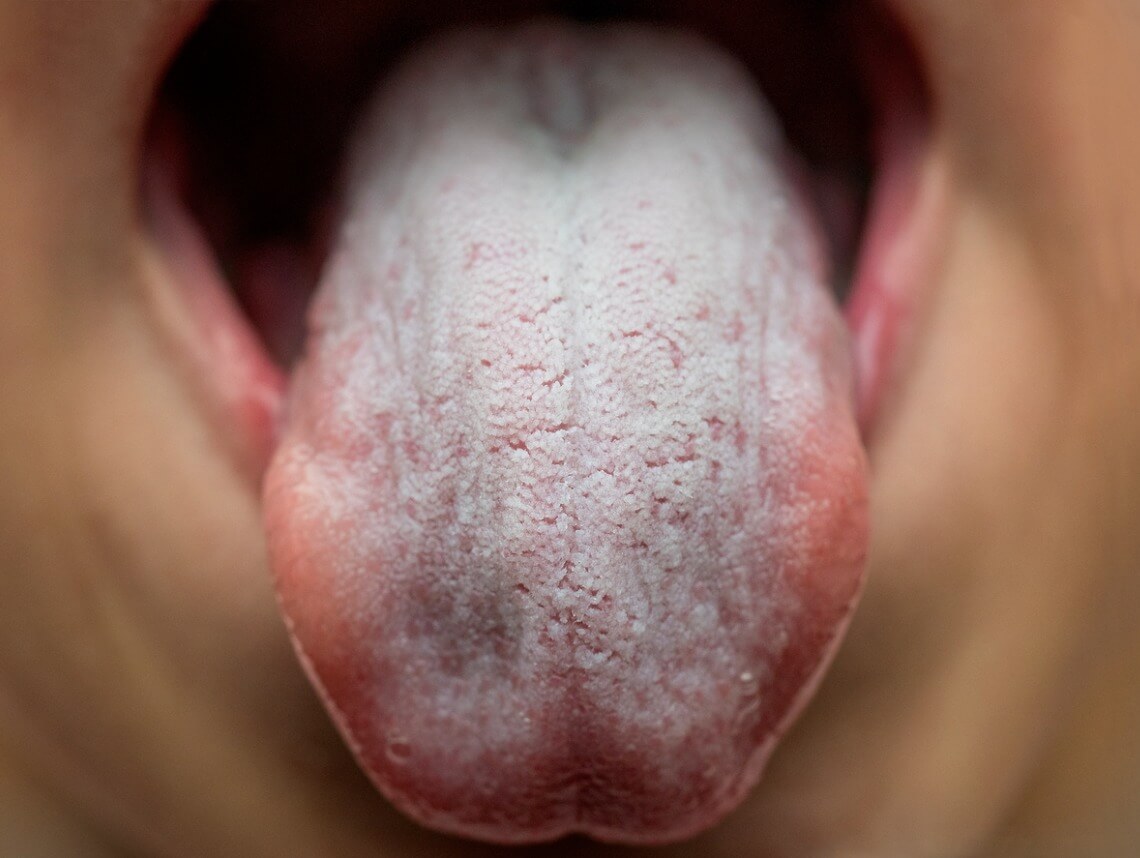
While thrush is usually a mild and treatable condition in most cases, it still comes with considerable care needs. Babies with thrush are often irritable and fussy, and can have problems feeding and sleeping while fighting off this infection. Parents also need to be concerned about preventing reinfection so that thrush doesn’t become a recurring issue.
This article will help you better understand this condition and give you practical advice on caring for a baby with thrush and preventing reinfection.
What Is Thrush?
Oral thrush in babies is caused by an infection of the fungus Candida albicans. This type of fungus occurs naturally in the body and is not usually harmful. Infections of the Candida fungus overgrowth generally occur as a result of a weakened immune system or some other external factor.
Because babies are still developing their immune systems, exposure to Candida albicans can often result in an infection that causes oral thrush. This is the same bacteria that causes vaginal yeast infections in adults, and babies are often exposed to it during birth. Babies can also become infected with thrush while breastfeeding if Candida albicans is present on the nipples.
Telltale symptoms of thrush include:
- White sores and patches that cannot be easily scraped off, especially in and around the mouth
- Cracks and small patches of blood on the corner of the mouth
- Rashes in the diaper area
- Abnormal fussiness and crying
- Problems with feeding and interrupted sleep patterns
Doctors can usually diagnose this condition by physical exam or by examining a tissue sample.
7 Care Tips for Babies with Thrush
If your baby has been diagnosed, here are some effective tips for caring for a baby with thrush:
1. Use Antifungal Medications as Directed
The first line of treatment against oral thrush in babies is a form of antifungal medication called nystatin. This can be applied in drops into the mouth, or as a gel that can be spread around the lips. In most cases, this medication combined with other treatment steps that should help the infection clear up within a week to 10 days.
2. Make Your Baby as Comfortable As Possible
Dealing with an infection can be difficult, and it’s even harder for babies who don’t know what is going on and don’t have any way to communicate. That’s why the best thing you can do as a parent is create a calm and soothing environment for your little one. Use a gentle voice and reassure your baby as much as possible.
If he or she is having difficulty sleeping or eating, stay patient and just try to keep your baby as calm, comfortable, and relaxed as possible. Being stressed out makes it hard to fight off an infection, and this is especially true for babies.
3. Use Antifungal Creams to Help with Diaper Rash and Prevent Reinfection
In addition to prescription medication, an over-the-counter fungal cream can help manage side effects, such as diaper rash. You can also use it around your nipples if you are breastfeeding to prevent the infection traveling back and forth between the breasts and mouth.
4. Eat a Healthy Diet
Another preventive step that can be easy to overlook is to have good nutrition that promotes healthy bacteria growth in adults. Limiting sugar, while eating fruits and vegetables, probiotic yogurt, and other healthy foods can help balance bacteria and reduce the presence of Candida albicans. This can lower the levels that your baby is exposed to, particularly if he or she is breast feeding.
5. Take Steps to Reduce the Risk of Reinfection
While caring for a baby with thrush, it is extremely important to create a clean and sterile environment at home. This includes cleaning and disinfecting all surfaces, particularly those that your baby comes in contact with.
Additionally, anything that your baby puts in his or her mouth should be cleaned and sterilized regularly. If your little one uses a bottle and/or you use a breast pump, it should also be sterilized. Clean your breasts after feeding, and if you use nursing pads, they should be changed regularly.
6. Follow Up With Your Doctor if Thrush Doesn’t Clear within 10 Days
Thrush should be a temporary infection that clears up in a short period of time. If an infection lasts longer than 10 days, or you are dealing with persistent reinfections, it could be a sign of a more serious underlying issue. Your doctor can order additional tests and take diagnostic steps to identify the presence of another condition.
7. Get the Support You Need
For serious or recurring thrush infections, families can turn to pediatric home health services if additional assistance and care are needed. From helping ensure a clean and sterile environment, to assisting with feeding and medication, a caring home health professional can help provide the attention and support your little one deserves.
Contact Care Options for Kids for Home Health Care in Florida
It can be hard to balance your time between work, home, and caring for a child. That’s why our team of professionals at Care Options for Kids is here to help. We have been enforcing precautionary measures and following the Centers For Disease Control (CDC) guidelines for COVID-19 to ensure the safety and health of our clients and employees.
Our home health care services offer one-on-one care in the comfort of your home. We refer loving and competent nurses to provide customized care for families — from a few hours a day to around-the-clock supervision. Contact us directly to speak with a home health care professional or request a free in-home assessment. Together we can determine the best plan of action to keep your loved ones happy and healthy.
If you or a loved one are considering Pediatric Home Health Care Services in Florida, contact the caring staff at Care Options for Kids. Call today at (888) 592-5855.
